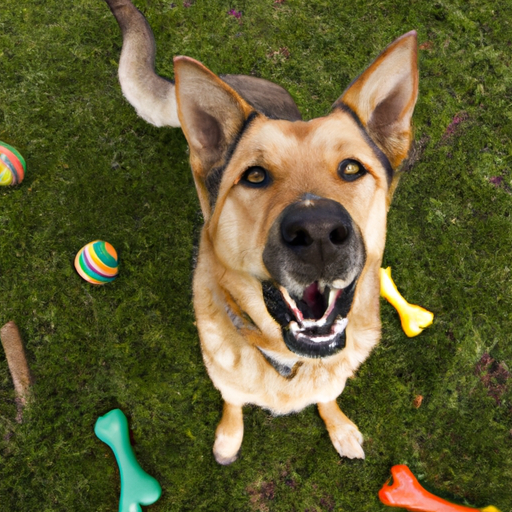Understanding Your Dog’s Behavior
You’re playing with your dog, and suddenly they growl. It can be a startling sound, especially if you’re not used to it. But don’t worry, this is actually a normal behavior for many dogs. Dogs use a variety of sounds to communicate, and growling is one of them. While it can sometimes signify aggression, it can also be a way for dogs to express excitement or enjoyment.
When your dog growls during play, it’s often a harmless form of communication. They might be trying to tell you they’re having a great time and want to keep playing. Or, they could be getting a little too excited and need a moment to calm down.
Let’s delve a bit deeper into understanding this behavior:
- Play Growling: This is often a low, rumbling sound that comes from deep in the throat. It might be accompanied by a wagging tail, relaxed body, and playful behavior like bowing or bouncing around.
- Aggressive Growling: This is typically a louder, more intense sound. It might be accompanied by stiff body language, bared teeth, and other signs of aggression.
Decoding Your Dog’s Growls
Reading your dog’s body language is key in determining the meaning behind their growls. Here’s a quick guide to help you understand:
- Relaxed body: If your dog’s body is relaxed and they’re wagging their tail, it’s likely a playful growl.
- Stiff body: If your dog’s body is stiff and their tail is still or tucked, it could be a sign of aggression.
| Body Language | Meaning |
|---|---|
| Relaxed Body, Wagging Tail | Playful |
| Stiff Body, Still or Tucked Tail | Aggressive |
Ensuring Safe Play
To ensure safe play, always monitor your dog’s behavior and body language. If they start showing signs of aggression, it’s best to stop the play and give them some time to calm down.
Remember, it’s always better to err on the side of caution. If you’re unsure if your dog’s growling is playful or aggressive, it’s best to consult with a professional dog trainer or behaviorist.
What to Do if Your Dog Growls Aggressively
If your dog’s growling becomes aggressive, it’s important to handle the situation calmly and assertively.
- Don’t punish: Punishing your dog for growling can actually make the behavior worse.
- Redirect: Distract your dog with a toy or treat to redirect their attention.
- Consult a professional: If aggressive growling persists, consider seeking help from a professional dog trainer or behaviorist.
FAQ
Q: Why does my dog growl when we play?
A: It’s often just a form of playful communication.
Q: Is it bad if my dog growls during play?
A: Not necessarily. It’s important to read their body language to understand the meaning behind the growl.
Q: What should I do if my dog growls aggressively?
A: Stay calm, redirect their attention, and consider seeking professional help if the behavior persists.
Q: Can I train my dog not to growl during play?
A: It’s not recommended, as growling is a form of communication for dogs. Instead, focus on teaching them to play safely and appropriately.
Remember, your canine companion may not have words, but they have plenty of ways to communicate with you. Learning to understand their growls can help enhance your bond and ensure safe, enjoyable playtime.



